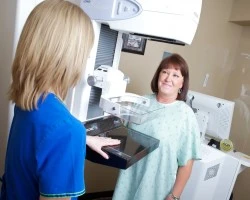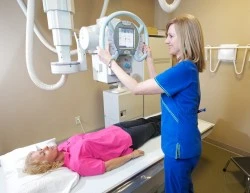The MRI is used as a diagnostic tool by physicians. This extremely effective machine uses a magnetic field and radio waves to show images of the inner body and any pathological changes.
The MRI is used in a wide variety of medical circumstances. Physicians order an MRI scan as a method for early disease detection, pathological changes or the display of congenital abnormalities in tissues and organs. An MRI is effective in every area of the body. Blood vessels and flow, heart diseases, functional mapping of the brain, examination of the spinal cord, ear and eye diseases, disc herniation, liver, pancreas, kidney and gallbladder abnormalities, tumors, joint diseases and soft tissue abnormalities are just a few of the reasons an MRI scan may be prescribed. It is an especially useful tool for oncologists in the treatment of cancers.
Patients scheduled for a MRI exam may continue their normal diet, medication and activity prior to this exam. A thorough medical history will be taken and reviewed by the prescribing physician and the technologist. During the exam, which takes approximately 30 minutes, the patient is asked to lie quietly still as the scanner records images of the inner body. This non-invasive scan is performed without the harmful effects of radiation because it uses magnetic principles. There is no post-procedure recovery time and patients may return to their regular routine immediately.
Located at our North Campus, at the time of installation, The Jackson Clinic was one of only two providers in the Southeastern United States with the new GE Brivo 355. This advanced technology provides vivid images of blood vessels without use of contrast.
The MRI Department is fully accredited by the Intersocietal Commission of Accreditation which means our technologists are licensed, fully trained and must continually keep up with continuing education. The equipment must be maintained and inspected monthly by a qualified service engineer.
Any physician or nurse practitioner can refer patients to the Imaging Department for an MRI.


